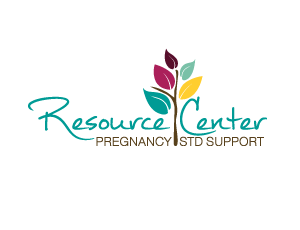I know that STDs (Sexually Transmitted Diseases) are a risk of having sex and can be uncomfortable, but so what? I can deal with a little discomfort. There are no long term effects of having an STD, right?
Unfortunately, the above information is incorrect. STDs can have long term consequences on your health. There are many different types of STDs that can be passed from one person to another during sexual contact. Many times an individual may not observe any signs of having an STD for days, weeks, or even longer. Some STDs can be cured with the right medicine, but other types of STDs will always be in your body if you are infected with them. The STD can be causing damage to your body and you may not be aware of it for quite a while. So what are the long term risks of having an STD?
Depending on the type of STD, the risks vary. Some of the long term risks of having an STD are:
-Infertility1,4
-Long term pelvic pain1,4
-Pelvic Inflammatory Disease in women1,4
-Infection and possible scarring in the tubes that carry sperm out of the testicles1,4
-Increase in your chance of getting HIV infection2,4,9
-Outbreaks of sores or lesions that can spread to other areas of the body3,4,5
-Cancer3,5
-Chronic disease2,3,5,6,8
-Death6,8
There are also risks for pregnant women and their babies if the woman has an STD. Some of the health complications are:
– Ectopic pregnancy, which is a pregnancy outside of the uterus *this can be deadly for the woman as well as the baby
– Miscarriage
– Infection inside the amniotic sac or uterus
– Amniotic sac (bag of water) breaks prematurely
– Premature labor
– Premature birth
– Low birth weight of the baby
– Caesarean section due to STD infection
– Newborn can become infected with the STD *this can cause serious and sometimes fatal health complications for the baby
– Stillbirth of baby
– Death of baby shortly after birth7
Everyone who has sexual contact with another person is at risk of getting an STD. The only way to know for sure whether you have an STD is to get tested. The Resource Center does offer free STD tests for chlamydia and gonorrhea, which are two of the most common STDs. We can also provide referrals to other places that test for other STDs. It would be our pleasure to provide these services to you.
For more information on different STDs, you can visit https://www.cdc.gov/std/healthcomm/fact_sheets.htm
Sources:
- Chlamydia- CDC Fact Sheet: https://www.cdc.gov/std/chlamydia/stdfact-chlamydia.htm
- Genital Herpes- CDC Fact Sheet: https://www.cdc.gov/std/herpes/stdfact-herpes.htm
- Genital HPV Infection- Fact Sheet: https://www.cdc.gov/std/hpv/stdfact-hpv.htm
- Gonorrhea – CDC Fact Sheet: https://www.cdc.gov/std/gonorrhea/stdfact-gonorrhea.htm
- HPV and Men- Fact Sheet: https://www.cdc.gov/std/hpv/stdfact-hpv-and-men.htm
- STDs and HIV- Fact Sheet: https://www.cdc.gov/std/hiv/stdfact-std-hiv.htm
- STDs during Pregnancy- CDC Fact Sheet: https://www.cdc.gov/std/pregnancy/stdfact-pregnancy-detailed.htm
- Syphilis- CDC Fact Sheet: https://www.cdc.gov/std/syphilis/stdfact-syphilis.htm
- Trichomoniasis- CDC Fact Sheet: https://www.cdc.gov/std/trichomonas/stdfact-trichomoniasis.htm




